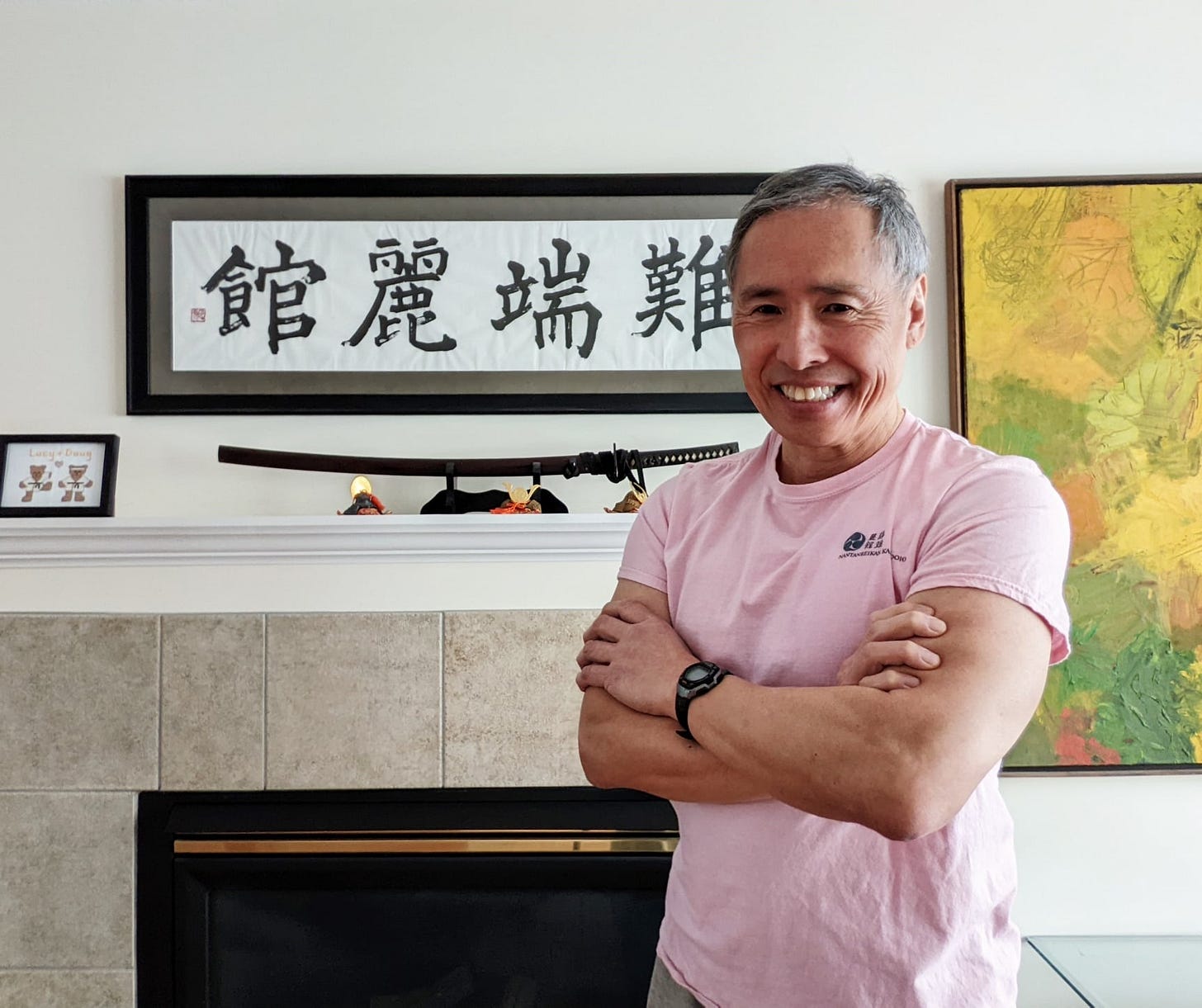The next Pink Shirt Day, the symbolic stand against bullying, is still months away, but it’s been on my mind of late. I post on Twitter/X in part to feature my karate dojo, but it’s impossible to spend much time there and not be appalled by its bullying and viciousness. I’ve read criticisms of Pink Shirt Day, such as a mother saying her kids refuse to wear pink at school because their bullies wear them. I understand; plenty of bullies and liars and other kinds of awful people love to style themselves as virtuous. There are everyday wolves in sheep’s clothing. Still, being bullied was and remains a tragically common experience for both children and adults, and while what I or you wear won’t change that, attention being drawn to the issue is surely a good thing.
I could write about being bullied personally, but others have suffered more, and being old and retired has the advantage of being largely out of reach of institutional contexts like school and work where bullying is entrenched. Institutions proliferate insidious hierarchies, and since the powerful are so often certain of their superiority, power is close-coupled to abuse and denigration. I have no doubt that I will still get as royally shit upon in the future as I have in the past, and I block regularly on social media, but I’m really not vulnerable to bullies anymore. There’s satisfaction enough in removing them from my life. Yet that’s merely subtraction, and, regardless of what anyone feels about Pink Shirt Day, it’s indisputable that bullying calls for a more positive response. One answer is through karate.
My wife, who’s both a highly experienced teacher and a black belt, calls our dojo the “Island of Misfit Toys.” I hope our members won’t be offended. I do know we have some people who are absolutely wonderful, but who also have been or would be bullied for their bodies, their race, their sexual orientation, their gender identification, or being otherwise “different.”
Some dojos advertise themselves as “world class,” but in ours we know we are not the elite martial arts athletes of the world—or even the city. Still, each of us comes to training to work hard, in our own way and subject to our own limitations and missteps, trying to become stronger, faster, tougher, more skillful, more aware, more knowledgeable, more balanced and rooted. We sweat and strive for a touch more grace. But our quest for grace in moving across the dojo floor embodies a deeper desire for grace in moving through life. As a community, we seek to be as welcoming and supportive as we can. Others punch faster or kick harder, others can boast of trophies and medals and awards, and I deeply admire practitioners whose technique is much better than mine. But no one is more committed to being the very opposite of bullies than the good people of my dojo. Often people seek out karate because they feel vulnerable and want to be able to defend themselves; those who train with us stay because of the kinship and kindness of my students and instructors. That’s what we’re fighting for on our little island.





